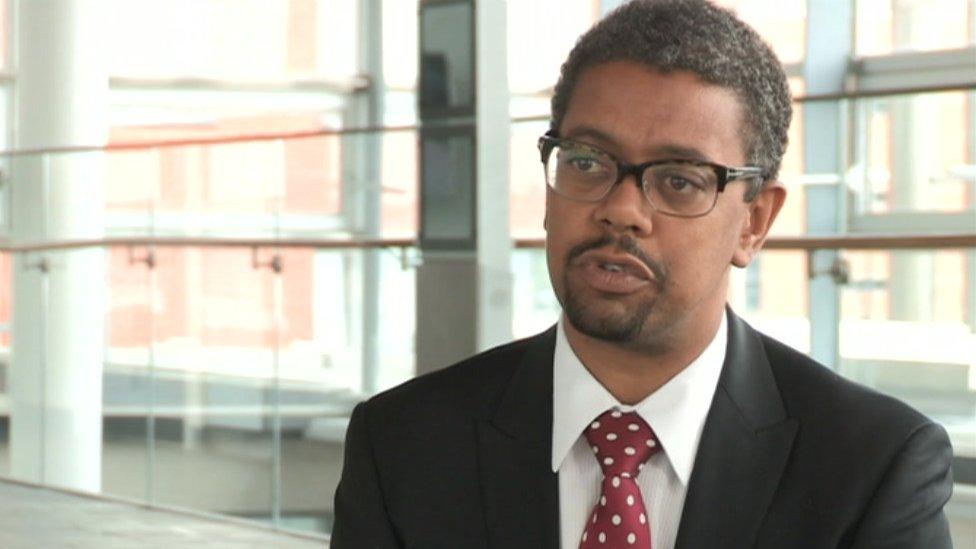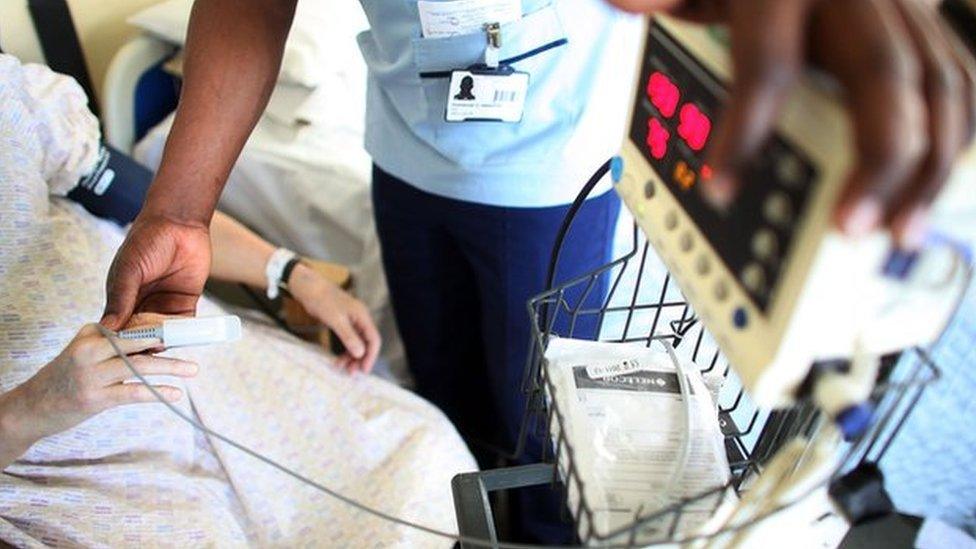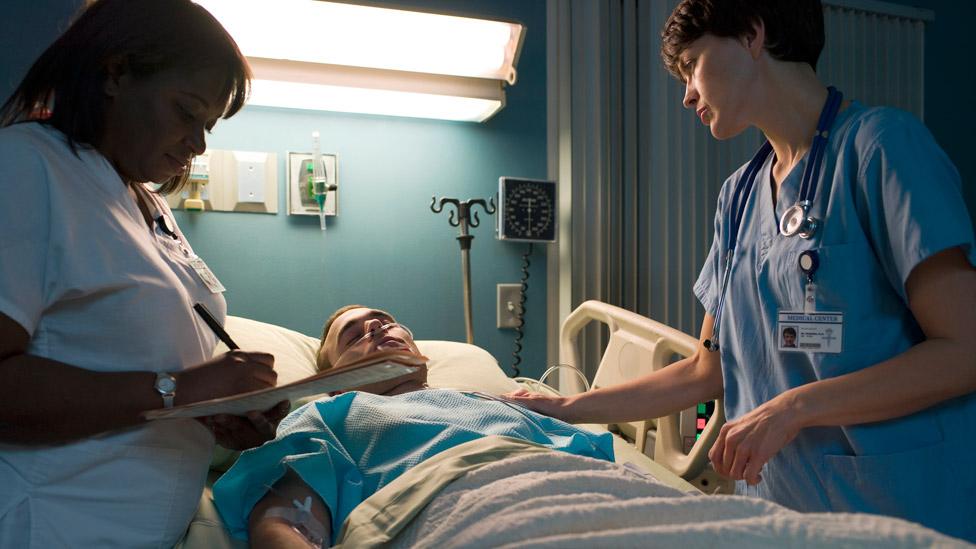NHS Wales spends millions on short-term fixes, says BMA
- Published
- comments
Meuris Williams, of Llanrwst, in Conwy county, has been waiting two years for a hip replacement
NHS Wales is spending millions on short-term fixes to waiting lists instead of addressing the shortage of specialist doctors, according to the British Medical Association.
Latest figures show health boards spent £29m in 2017-18 on consultant overtime and private providers - nearly double the £15.7m paid out in 2014-2015.
In August the Welsh Government set aside £50m to reduce waiting lists.
It also said the number of consultants employed is at a "record high".
Health boards pay roughly £145 an hour for consultant overtime specifically to reduce waiting lists and figures obtained by BBC Radio Wales under the Freedom of information Act show this cost NHS Wales a total £11.5m in 2017-2018, up from £8.7m in 2014-2015.
Boards also paid £17.5m to private sector providers to help clear waiting lists, up from £7m four years ago.
Dr Pickersgill, a neurologist at the University Hospital Wales in Cardiff, who represents consultants on the BMA Wales board, said this "short-termism" was an expensive way to clear backlogs, and that "sensible budgeting" was needed so that more permanent consultant doctors and surgeons could be recruited.
'Reactive approach'
Dr Paul Worthington, a research associate from Cardiff University's Wales Centre for Public Policy, said the Welsh Government's strategy may actually be encouraging a reactive approach.
"They are just using the money to fill a gap," he said. "A significant chunk is going straight to the private sector. That may hinder long-term consultant recruitment."
He pointed to orthopaedics, where one-off payments from the Welsh Government may be speeding-up times to get surgery for things like knee, hip or back problems. But the boards getting the money, he said, may not be doing enough to develop teams of physiotherapists and specialist nurses who can reduce the need for surgery.
Clare Jenkins, joint chief executive of the patient watchdog Community Health Council, agreed with extra spending in the short-term, but said it is not an ideal solution for patients either.
"Nothing beats having the proper workforce in place to enable people to be seen in a timely way and also to have consistency through their care pathway," she said.
"You want to see the same consultant before your operation, who does your operation and afterwards because it gives individuals that sense of security."

Vaughan Gething said he made "no apologies" for helping people on waiting lists
In March the Welsh Government unveiled its planned care strategy, which includes a key aim of cutting "referral to treatment waiting times through actively managing capacity and demand".
In August 2017, a £50m fund was set up to for health boards to reduce waits for pre-arranged surgery, diagnostics and specialist therapies, subject to targets.
The Welsh Government said since then the number of people waiting over 36 weeks has reduced by over 10,000 to the "best position since March 2014".
It said monthly waiting times for therapy are at a seven-year low and diagnostic waiting times are at their lowest level since 2009, and that the number of hospital consultants has increased since 2016 by 97 to a "record high" of 2,466 - a rise of 4.1%.
The health secretary Vaughan Gething said he "made no apologies" for spending that helps people who are in pain.
"We are spending money in a way that I do not think is right on a long-term basis," he said.
"But you can't simply say to people you just need to wait for longer because we've got to address the long-term challenges."
- Published16 February 2017

- Published9 May 2018

- Published10 August 2017

- Published22 May 2018
